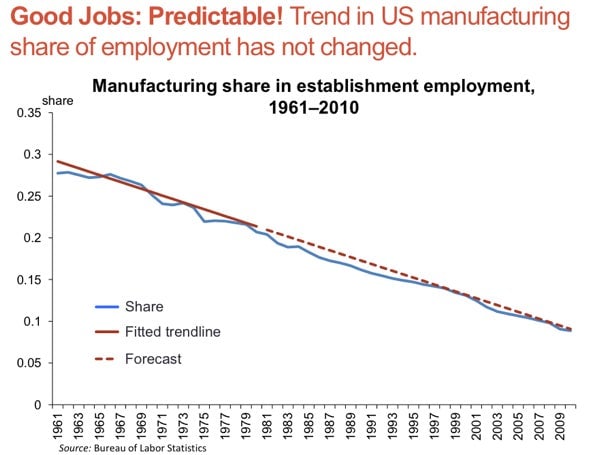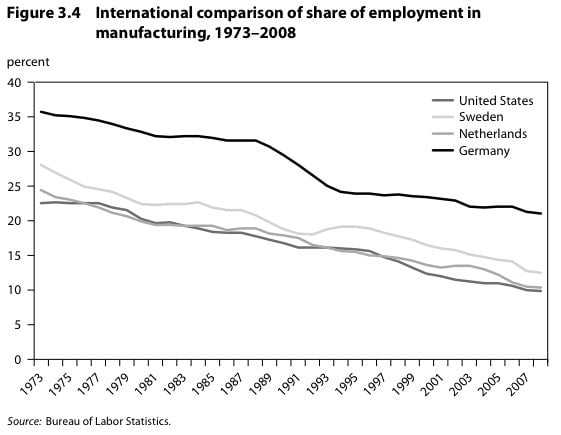The job-shedding factories of today are the job-shedding farms of 50 years ago
Sometimes big trends get masked by smaller ones. The steady decline in manufacturing employment is one of these: While the number of people working in US factories is on the rise since the recession, it looks like job losses in the sector over the last few decades won’t be recovered. The temptation is to blame foreign competition and globalization, the real bugaboo is productivity:

Sometimes big trends get masked by smaller ones. The steady decline in manufacturing employment is one of these: While the number of people working in US factories is on the rise since the recession, it looks like job losses in the sector over the last few decades won’t be recovered. The temptation is to blame foreign competition and globalization, the real bugaboo is productivity:

That graph comes from Dylan Matthew’s discussion of a new book by Robert Z. Lawrence and Lawrence Edwards. Well before free trade put workers from around the globe in competition with each other, productivity gains made it such that fewer people were able to produce more things. One useful confirmation is found in the international data:

In other words, robots are taking our jobs. But that’s not necessarily the end of the world! Let’s look back 60 years to see what’s happened to agriculture’s share of the workforce in the United States:

In 1949, roughly 2 out of every 10 Americans worked in agriculture. Then machines took their jobs. And this data, which goes as far back as the US keeps records, doesn’t even show when industrialization really started to affect farm employment. There wasn’t as much complaint in the ’50s and ’60s as there is now because farm labor wasn’t all that pleasant and the economy was growing, with new factory jobs to be had. It was just as economists had hoped: Labor-saving devices eliminated jobs in some places, but those people found new work thanks to all the new value created by innovation.
The problem today isn’t so much that manufacturing jobs are becoming more scarce; it’s that we haven’t figured out exactly what to replace them with yet—what the social and economic institutions of a post-industrial economy actually look like. For workers, we think it’ll require abstract thinking, hence the focus on education, and probably involve providing services to other people, and, yes, the internet. But while society deals with what can be a painful transition, it can be comforting to remember that we’ve managed it before.